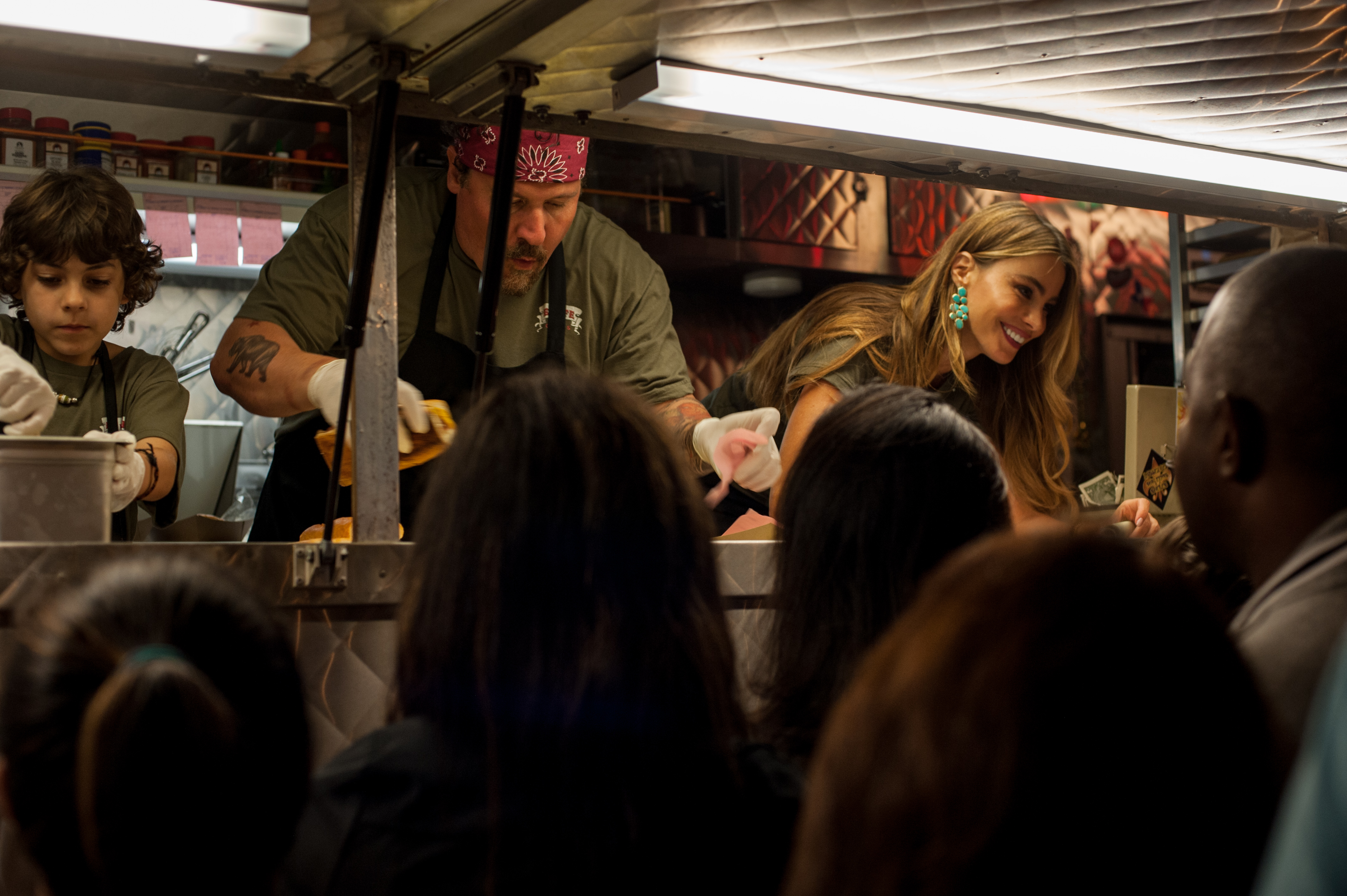What do you do when you are a less-troubled, comedic filmmaker/actor/
You write, direct, produce and star in a movie that features Scarlett Johansson and Sofia Vagara as your like-able lovers. You have slightly dysfunctional but honest relationships with both of them. You hook-up with both of them and somehow maintain a working relationship with each. Ultimately, though, you make it clear that only the most abounding female counterpart will do--you make sure that your viewers are aware of your time spent with beautiful women.
You also cook and eat delicious food in your movie. As 'the chef' you shuffle in plenty of foodie montages that are pleasant to look at and admire. You keep your chopping skills sharp and Bobby Flay motions well-rehearsed so as not to appear staged. It might be hard for the viewer to believe that you are 'the chef', especially one that has seen your previous films, but you rest against good-enough acting to keep the montages from being obtrusive yet still noticeable like, "Oh, I see what he's doing here."
You comment on your own 'celebrity' and all that goes into it. You thoughtfully, but not too thoughtfully, so as to not alienate the weekend movie-going crowd, usher in some deeper questions about 'celebrity' and 'social media'. You do your best to make real the feeling, the humanity, the saliency, and reach of social media. One of this bent, of the ultra-successful (one that once hosted a round table series that featured those guys like you, that made their own way in Hollywood with hard work and a tough-it-out mantra, smoking cigars and talking of the good-ol-days) must be laughing at the end. So you confront the cowardice behind a tweeted quip and chisel away at the hurt with constructive, feel-good laughter. You look out on the world and in the spirit of Louis C.K. say, "Hey, yeah we can suck sometimes. All of us. But we can also make good stuff. And it can even be funny."
You hang out with your friends and capture the fun of an adventure with them. You know that hitting the road and seeking out plot twists works. You've seen it work really well when you do it with friends that are endearing, loyal, funny and have some presence. So when you're making 'your' movie, you put a road-trip at the heart of your movie. You center with something that has been lost and must be found and it can only be found by leaving. As it should be, you realize it has been right in front of you all along. You take the sentimental route and don't make any apologies.
You fold in an ending that tastes and feels good. When you can do whatever you want with a movie and you desire success (however you want to measure it) you don't aim for too much. You keep everything within reach. You know your limits. The only way you could really screw up this whole endeavor is by trying to comment too much on, by weighing in too much on, by critiquing too much, by trying to effect too much, by doing too much. You know this because you've seen many of your brethren fall hard out on the fringes. Cannes does its thing. You do your thing. You keep the ending where it should be and allow the viewer (the ticket buyer) to walk out saying to their movie-going company, "What are you doing tomorrow?" With this sort of ending you keep the viewer from saying, "What the hell was that?" or "I liked it until it got all preachy." or "What am I?" You keep things in line when your life is good.
You essentially make a movie that is tough to dislike, will make money, and will solidify your place in between 'Swingers' and 'Iron Man'; in between low budget and 'Titanic' budget; in between cult hit and Hollywood blockbuster; in between 'classic' and 'popular'; in between 'artist' and 'business'. You make a movie that's an entertaining break from reality because that's what you do best. You don't chase Ingmar Bergman or Terence Malik or Nicolas Roeg. You just do your best and make something good.


No comments:
Post a Comment